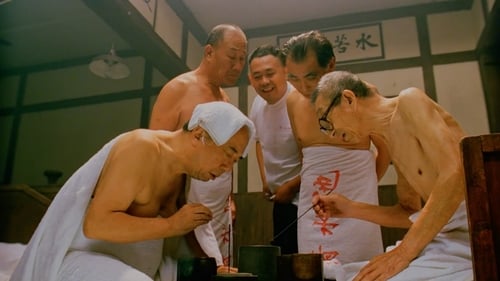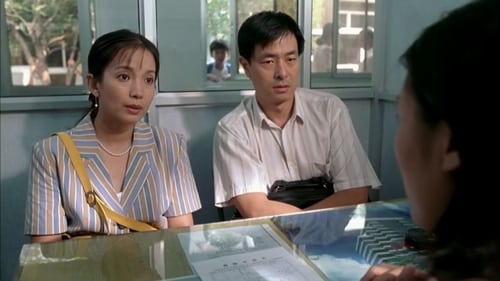
Cinematography
After her mother's lecherous boyfriend reveals she's adopted, incorrigible flirt Dada skips town -- with hopelessly smitten boy-next-door Zhou in tow -- in search of her birth mother.

Cinematography
A young woman who has lost her first love begins a relationship with his best friend, and the two of them attempt to create a baggage-free future.

Cinematography
1988년 베이징, 이제 막 중년에 접어든 한동은 잘나가는 무역회사의 대표로서 나름대로 성공한 사업가이다. 한동이 여자보다 남자에게 관심이 많은 것은 몇 사람만 알고 있다. 란 위는 막 베이징에 도착한 시골소년으로 건축을 공부하는 학생이다. 가난한 고학생인 그는 돈을 벌기 위해서는 뭐든 해야하는 상황이다. 그러던 중 우연히 하룻밤만 게이바에서 일해보라는 제안을 받는다. 그 하룻밤에 란 위는 한동을 만나고 두 사람은 계약을 하고 한동의 집으로 가 밤을 보낸다. 생애 처음으로 갖는 남자와의 섹스는 란 위의 인생을 바꿔놓고 가끔 만나는 한동을 통해 란 위는 자신안에 숨겨진 남자에 대한 사랑을 발견한다.

Cinematography
성공하기 위해 큰아들이 집을 떠나자 베이징에 남은 아버지는 저능아 아들을 키우며 목욕탕을 운영한다. 시간이 흐른 후, 아버지가 돌아가셨다는 잘못된 소식을 듣고 집으로 돌아온 큰아들은 점차 목욕탕의 신비와, 그 지역사회에서 목욕탕이 얼마나 중요한 곳인가를 깨닫게 된다. 목욕 문화의 매력에 사로잡힌 그는 점차 가족에 대한 책임감도 배운다.

Cinematography
Six different episodes about different generations' relationships. Love can be sweet, sour, or spicy.

Director of Photography
민감한 젊은 작가 아란은 어느날 동성애자들이 종종 찾는 북경의 국립공원을 거닐고 있던 중 경찰의 수색으로 사령부로 끌려간다. 경찰의 철저한 검색이 계속되자, 아란은 혼란스러웠던 삶의 기억들이 예기치 않게 떠올리게 된다. 그는 어린 시절, 부모님, 학교, 첫번째 성경험, 나라에서 정치적으로 위임받은 소 작농업, 진실한 사랑에 대해 무감했던 시절들을 회상한다. 아란의 인생을 짧지만 섬세하게 훑어본 경관은 자신의 수감자에 대한 감정이 동요되기 시작한다. 이후 묘한 사랑 이야기가 펼쳐지게 되는데...

Director of Photography
Story of a real family in Beijing. The father's drinking problem starts it all. The mother struggles to keep the family together till she cannot take it any more.

Director of Photography
A rock musician looks for his girl-friend who left while pregnant, trying to decide whether to keep the baby.

Director of Photography
Often cited as China’s first independent feature film, this low-budget drama, filmed largely in the director’s Beijing apartment, depicts the life of a single mother (a topic considered taboo at the time) caring for her mentally challenged son. Shot with a documentary aesthetic that includes interviews with families of mentally challenged persons, the film helped kick-start the Sixth Generation of filmmakers (including Wang Xiaoshuai and Jia Zhangke) and their ethos of employing documentary realism to depict the true conditions of contemporary China.








